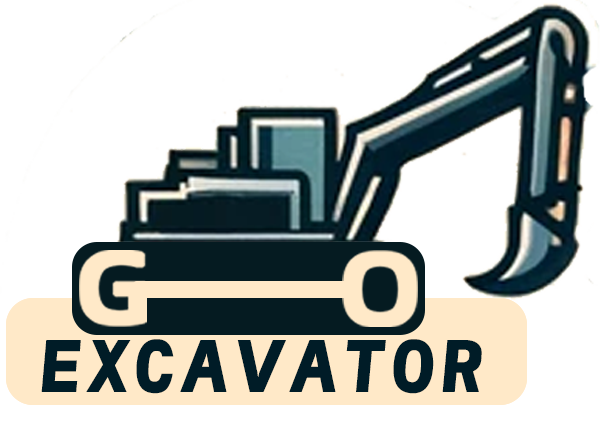
When it comes to heavy construction equipment, excavators and backhoes are two of the most commonly used machines. Both are essential for various types of projects, from small-scale landscaping to large-scale construction. However, despite their similarities, they serve different purposes and have distinct features. In this article, we will explore the similarities and differences between excavators and backhoes, helping you understand which machine is best suited for your needs.
What is an Excavator?
Definition and Structure
An excavator is a heavy construction machine consisting of a boom, dipper (or stick), bucket, and cab on a rotating platform known as the house. The house sits atop an undercarriage with tracks or wheels. Excavators are primarily used for digging, lifting, and moving large objects.
Common Uses
Excavators are versatile machines used in a variety of applications, including:
- Digging trenches and foundations
- Demolition
- Material handling
- Forestry work
- Mining
- River dredging
- Heavy lifting
What is a Backhoe?
Definition and Structure
A backhoe is a piece of excavating equipment consisting of a digging bucket on the end of a two-part articulated arm. It is typically mounted on the back of a tractor or front loader, which gives it the name “backhoe loader.” The front of the machine often has a loader attachment.
Common Uses
Backhoes are versatile and used for:
- Digging small to medium-sized trenches
- Excavating
- Landscaping
- Roadwork
- Material handling
- Light demolition
- Loading trucks

Similarities Between Excavators and Backhoes
Versatility
Both excavators and backhoes are versatile machines capable of performing various tasks. They can both dig, lift, and move materials, making them essential for construction and landscaping projects.
Attachments
Both machines can be equipped with various attachments to increase their functionality. Common attachments include:
- Buckets of different sizes
- Hydraulic breakers
- Grapples
- Augers
- Thumbs
Mobility
Excavators and backhoes offer mobility, although in different ways. Excavators, especially those on tracks, can move around a job site efficiently. Backhoes, mounted on tractors, can travel between job sites on roads, which is a significant advantage for smaller, spread-out projects.
Differences Between Excavators and Backhoes
Design and Structure
The primary difference lies in their design:
- Excavator: Has a house that rotates 360 degrees, mounted on tracks or wheels. It usually has a larger boom and bucket.
- Backhoe: Has a fixed cab and a two-part arm mounted on the back of a tractor or front loader. The front typically has a loader attachment.
Size and Power
Excavators are generally larger and more powerful than backhoes. They are better suited for heavy-duty tasks and large-scale projects, whereas backhoes are more appropriate for medium-sized projects and tasks that require frequent relocation.
Maneuverability
Backhoes are more maneuverable on public roads and smaller job sites due to their smaller size and wheel-based design. Excavators, especially those on tracks, are better for rough terrains and larger sites but require transport vehicles to move between sites.
Digging Depth and Reach
Excavators typically have a greater digging depth and reach compared to backhoes. This makes them more efficient for deeper excavation tasks and projects that require extensive digging.
Applications
- Excavator: Best for large-scale construction, mining, and heavy-duty projects.
- Backhoe: Ideal for small to medium-sized projects, landscaping, and light construction work.
Choosing Between an Excavator and a Backhoe
Project Requirements
The choice between an excavator and a backhoe depends on the specific needs of your project. Consider factors such as the size of the project, the type of terrain, and the tasks you need to accomplish.
Budget
Excavators are generally more expensive to purchase and operate than backhoes. If your budget is limited, a backhoe might be a more cost-effective choice for smaller projects.
Versatility Needs
If your project requires frequent relocation and a variety of tasks, a backhoe’s versatility and road mobility could be beneficial. For more specialized and heavy-duty tasks, an excavator’s power and reach will be advantageous.
Both excavators and backhoes are invaluable pieces of construction equipment, each with its own strengths and weaknesses. Understanding the differences between the two can help you make an informed decision based on your specific needs. Whether you choose an excavator for its power and reach or a backhoe for its versatility and mobility, both machines will undoubtedly enhance your project’s efficiency and productivity.
Frequently Asked Questions (FAQs)
1. Can an excavator perform the same tasks as a backhoe?
While there is some overlap in their capabilities, excavators are generally better suited for heavy-duty tasks and large-scale projects, whereas backhoes are more versatile for smaller, varied tasks.
2. Which machine is more cost-effective for small projects?
Backhoes are typically more cost-effective for small to medium-sized projects due to their lower purchase and operating costs compared to excavators.
3. How do I choose the right machine for my project?
Consider the size and scope of your project, the type of tasks you need to perform, and your budget. For large-scale and heavy-duty tasks, an excavator is ideal. For smaller, varied tasks, a backhoe is more suitable.
4. Are backhoes easier to transport than excavators?
Yes, backhoes can travel on public roads and do not require transport vehicles, making them easier to relocate between job sites compared to excavators, which often need to be transported on trailers.
5. What attachments are available for excavators and backhoes?
Common attachments for both machines include different sizes of buckets, hydraulic breakers, grapples, augers, and thumbs, allowing for increased versatility and functionality.
A Comprehensive Guide to Buying a Excavator Second Hand
Purchasing a second-hand excavator can be a cost-effective solution for your construction or landscaping needs. However, buying used machinery comes with its own set of challenges and considerations. This comprehensive guide will walk you through [...]
Comprehensive Guide to Hyundai Mini Excavators: Features and Prices
Mini excavators have become indispensable tools in the construction and landscaping industries. Hyundai Construction Equipment, a global leader in heavy machinery, offers a range of mini excavators known for their reliability, efficiency, and advanced features. [...]
How to Extend the Service Life of Excavator Parts
Excavators are indispensable machines in the construction and mining industries. They perform heavy-duty tasks that demand robust components and meticulous maintenance. Extending the service life of excavator parts not only reduces operational costs but enhances [...]
Kymron Excavators: Innovative, Sustainable Construction Machinery
In the dynamic world of construction and heavy machinery, Kymron has emerged as a game-changer. Specializing in advanced excavator technology, Kymron is redefining industry standards with its commitment to innovation, efficiency, and sustainability. Company Overview [...]
Bulldozer vs. Wheeled Excavator: Which Machine is Better for Moving Soil?
Moving soil is a fundamental task in construction, landscaping, and earthmoving projects. Choosing the right machinery for the job can significantly impact efficiency, cost, and project timelines. Two of the most commonly used machines for [...]
Why Are Small Excavators Favored? A Comprehensive Guide
In the world of construction and landscaping, efficiency and versatility are key. Among the myriad of machinery available, small excavators have risen in popularity. But what makes them so favored? Introduction to Small Excavators Small [...]




